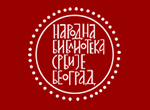
More articles from Volume 9, Issue 2, 2017
Effects of high-intensity interval training on aerobic fitness in elite Serbian soccer players
Motor performance of young soccer players depending on biological age
Improving motor fitness in primary school children through a school based intervention
Gender-related morphological characteristics in preschool children of Kolubara district
Citations

4

Nazan Ozturk, Fatma Unver
(2022)
The effects of pilates on posture and physical fitness parameters in 5–6 years old children: A non-randomized controlled study
Journal of Bodywork and Movement Therapies, 31()
10.1016/j.jbmt.2022.03.009
Hendra Mashuri, M. Adam Mappaompo, Palmizal A, Taufik Rahman, Andi Saparia, Juhanis Juhanis
(2022)
Pengaruh Permainan Gerak Dasar dengan Circuit Training terhadap Perkembangan Motorik Kasar Anak
Jurnal Obsesi : Jurnal Pendidikan Anak Usia Dini, 6(6)
10.31004/obsesi.v6i6.2213
Dragana Zarić, Zoran Gojković, Goran Sporiš, Dejan Madić
(2018)
Health-related fitness in preschool children: Difference between organized and unorganized physical activity
Exercise and Quality of Life, 10(1)
10.31382/eqol.180603
Ioannis Kazanidis, Evaggelia Andreadou
(2026)
Immersive Learning Research Network
Communications in Computer and Information Science, 2598()
10.1007/978-3-031-98080-0_9Improving motor fitness in primary school children through a school based intervention
University of Novi Sad, Faculty of Sport and Physical Education, Novi Sad, Serbia
University of Novi Sad, Faculty of Sport and Physical Education, Novi Sad, Serbia
Primary school “Đorđe Krstić”, Belgrade, Serbia
Primary school “Filip Kljajić-Fića”, Belgrade, Serbia
University of Novi Sad, Faculty of Sport and Physical Education, Novi Sad, Serbia
University of Novi Sad, Faculty of Sport and Physical Education, Novi Sad, Serbia
Abstract
The aim of this study is to establish the effects of specially programmed circuit training on physical fitness in primary school children. A total of 58 (28 girls) primary school children aged 11-13 (experimental group 12.2±1.2, control group 12.4±1.1) years voluntarily participated in this study. Physical fitness of children is assessed based on motor skills, through the following tests: abdominal muscle endurance - Sit-ups test, upper body strength and muscular endurance - Bent-arm hang test, upper-body muscular endurance - Pushups test, muscular strength and power of the lower limbs - Standing broad jump test, agility and speed - 4x10m test and flexibility - Sit and reach test. During the regular classes of physical education, the experimental group conducted a circular training lasting 15-20 minutes, at the same time control group practiced exercises that were in accordance with the plan and program of teaching physical education for a particular teaching unit. The treatment lasted for 15 weeks, with two classes of physical education per week. The results for the standing broad jump indicated significant differences between groups following 15 weeks. Furthermore, the group that participated in the circuit training program made significantly greater gains compared to the control group (p<0.05) in bent-arm hang, sit-ups and sit and reach. The results for the 4x10m test indicated no significant differences in time, group and their interaction (p≥0.05). To conclude, circuit training appears to be an effective way of improving physical fitness in primary school children. The results of this study indicate that this method was more effective for performance than traditional school program.
Keywords
References
Citation
Copyright

This work is licensed under a Creative Commons Attribution-NonCommercial-ShareAlike 4.0 International License.
Article metrics
The statements, opinions and data contained in the journal are solely those of the individual authors and contributors and not of the publisher and the editor(s). We stay neutral with regard to jurisdictional claims in published maps and institutional affiliations.
























